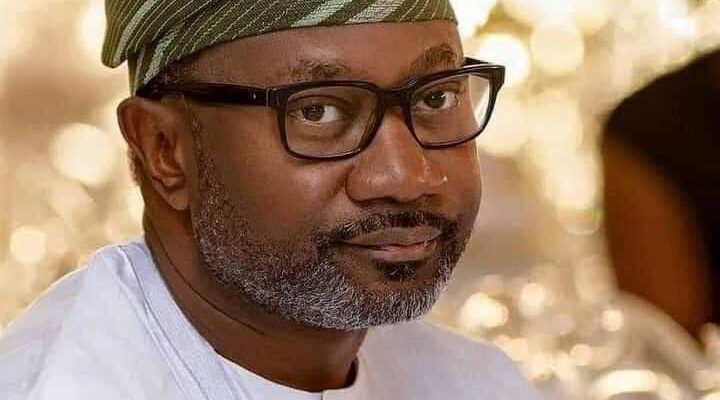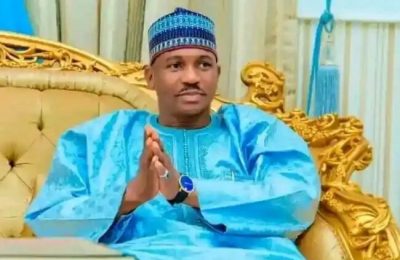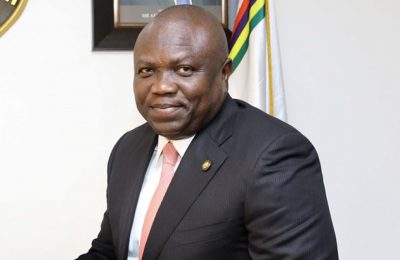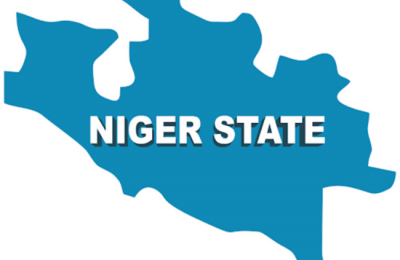
Billionaire businessman, Femi Otedola, must have struck a chord in many Nigerians when he lamented this week that Nigeria had generated only 5,000 megawatts since he was born. Speaking at the Closing Gong ceremony and commemoration of the first Annual General Meeting (AGM) of Geregu Power Plc, a company of which he is Executive Chairman, Board of Directors, on the floor of the Nigerian Exchange Limited (NGX) in Lagos, Otedola averred that if the power sector was well organized, it would have a lot of positive impact on the manufacturing sector and the entirety of the Nigerian economy. This was just as Geregu pumped $250m into power generation expansion to mark one year on the Stock Exchange.
His words: “The power sector has a lot of problems but they’re surmountable problems. It’s a matter of leadership in the country and willpower. Aliko, an individual, has built 2000 megawatts of power for cement, fertilizer plants and refinery. And the country where I was born has only 5000 megawatts. So it’s appalling and disheartening that all the successive governments have failed in this regard but I believe we are now at the stage where the power sector will get a lot of attention and priority. We have new plants still sitting idle that the government built years ago and the real problem is transmission. There is a need to look in this direction.”
There are obvious reasons why Otedola’s statement must be taken seriously. For one thing, he is a frontline industrialist and investor with a rich portfolio in the power and other sectors. For another, and for me the most striking, Otedola is an individual who is hardly known to offer any critique of government policy. In addition, he is an apolitical, though well-connected, business mogul and so his fiery dart aimed at the Establishment cannot be ascribed to the veneer of political partisanship.

To say the very least, the power situation that Otedola—I recall his father, Sir Michael Otedola, lamenting that Lagos was the dirtiest city in the world!—deplores is unfortunate. Born on November 2, 1960, Otedola is almost as old as Independent Nigeria and it must take a special kind of bad luck for anyone to be born in a country that has expended billions on generating darkness for over six decades. Sure, as an individual, Otedola has the wherewithal to, and does in fact, surmount the mountain of mosquitoes that lack of decent power supply has foisted on nearly 200 million Nigerians, but even the most understanding of moneymen also get tired of the din of generators. My late mum, Mrs Odunola Awolaja, used to say that whoever wants the world to be a better place would not be the only one to enjoy it when it does, so Otedola’s prognosis must be seen within the prism of dissatisfaction with Nigeria’s democracy’s failure to guarantee even the most basic things of life, the same issue I explored in “Democracy as despair.”
According to USAID, Nigeria, the largest economy in sub-Saharan Africa, has had its growth potential contained by the limitations in the power sector even with its large oil, gas, hydro and solar resources. Though it has the potential to generate 12,522 MW of electric power from existing plants, “on most days, it is only able to dispatch around 4,000 MW, which is insufficient for a country of over 195 million people.” As USAID correctly asserts, the Nigerian power sector experiences many broad challenges related to electricity policy enforcement, regulatory uncertainty, gas supply, transmission system constraints, and major power sector planning shortfalls that have kept the sector from reaching commercial viability.
As a matter of fact, in 2021, Nigeria was ranked as the country with the world’s worst electricity access. Nigeria, Africa’s most populous country, overtook the Democratic Republic of Congo with 25 percent of people without access to electricity! The damning figure was given by the World Bank Group officials during a virtual engagement with journalists in Abuja on the Power Sector Recovery Programme (PSRP). According to the officials, “Nigeria now has the largest number of unelectrified people globally and the trend is worsening. The supply is very unreliable with widespread blackouts.”
Per Energy Capital & Power, an Africa-focused global leading investment platform for the energy sector, the 10 leading countries in Africa with respect to electricity access are Egypt (100%), Morocco (100%), Tunisia (100%), Algeria ( 99.8%), Gabon (91.6% ), Ghana (85.9%), South Africa (84.4%), Botswana (72%), Kenya (71.4%) and Senegal (70.4%). It is maddening that Botswana, a land-locked country that relies on coal and petroleum product imports from South Africa and other regional neighbours, has far greater electricity access than Nigeria, a country so abundantly blessed. In any case, while Nigerian leaders kept cooking their jollof of empty promises, Egypt was developing plans to export surplus electricity via interconnections to Europe, the Middle East and sub-Saharan Africa!

It is a no-brainer that a country with the world’s worst access to electricity would also rank very highly on the malaria burden. Dark leaders produce dark nations. Per a 2016 report, Nigeria suffered the world’s greatest malaria burden with approximately 51 million cases and 207,000 deaths reported annually. Last year, the World Health Organisation (WHO) reported that Nigeria accounted for 31 percent of malaria deaths recorded globally in 2021. The report came just as the Federal Government was serenading a health indicator survey report it carried out in 2021 showing a slow but steady decline in malaria prevalence at the national level.
As Otedola pointed out, power generation is not the problem per se. Nigeria’s power generation is mostly thermal and hydro, with an installed capacity of 12,522 MW. But only a third of this is accessed on the best of days given the distributional constraints that have hobbled the country for decades: any power generated by states had to be fed into the national grid. In this regard, though, we must at least be grateful for the little mercies we might enjoy henceforth given the bills President Muhammadu Buhari recently assented to granting states the power to generate their own electricity. States, say of the South-West, must come together and create their own transmission lines, even if on a public/private wavelength.
Re: Democracy as despair
On Democracy as despair, I find that you are somewhat a lone voice, with almost everyone else playing the ostrich, especially those declaring the unconstitutionality of a supposed interim government. One wonders, is constitutionalism synonymous with apparent disdainful injustice and impunity? Maybe, one day, the elite of this country will rise up to halt the imminent end of this ‘whatever’ before it is too late, interim government or whatever else that might save the day. This is because, truth be told, this ‘democracy’ isn’t working.
Michael Olaotan
Contact: Nationnewslead.com







